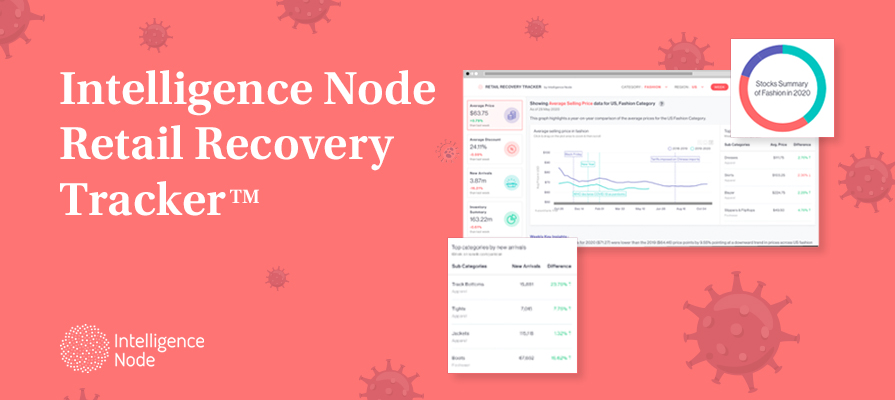Over 75% of retailers expect in-person shopping to resume sometime in the next six months. But what will it look like, exactly, when stores reopen?
Well, if you’re a retailer who believes everything will return to normal, you’re going to be in for a rude awakening. Because the reality is: We’re ways away from normal.
The COVID-19 situation is evolving on a daily basis. We’re seeing a rapid change in market conditions, consumer expectations, and employee concerns across the board. And no matter whether your doors reopen in July, December, or 2021, your entire approach to shopping in stores, malls, and public places is sure to change.
Top-down, from your macro strategies to in-store details, here are tips to prepare for this unexpected future:
The big picture: Adopting a mindset for the here and now
Pandemic or no pandemic, the issue at hand is that of business transformation. And as with any successful business transformation, the first step is creating sound, cohesive storewide policies that serve the best interests of employees and customers alike.
On the highest level, consider how products must be handled from manufacturing to purchase. Where can you cut down human involvement? And, more pressingly, where can you introduce more rigid precautions?
For the latter, you might wish to take a page out of Walmart’s book and introduce a timely code of conduct to dictate in-store behavior. Or, maybe not, but then you also have to formulate an effective vehicle for communicating company changes and response efforts.
Then, work to empower your in-store workers to be champions of these changes. Instead of demanding compliance, give employees the resources they need to establish and honor your guidelines. This could include training where needed, direct lines of contact with management, or flexible work arrangements for those with complex schedules (think: anyone whose kids will still be at home).
On that note, you can be sure that company mindfulness of workers’ mental health will continue to grow when stores reopen. Don’t let that element slip through the cracks when you focus on physical health.
Inside your store: The practical measures everyone will expect
Social distancing isn’t going away anytime soon.
When stores reopen, you need to prepare for a prolonged period of hesitation on the parts of shoppers and workers alike. The only way to overcome this hurdle is by playing into it: Create space buffers and amend ground plans to prevent unnecessary contact. Guide customers with clear signs and floor tape. In other words, if you worry about all the safety measures, they won’t have to.
To that end, don’t be afraid to enforce in-store capacities; people will reward you for providing the peace of mind of sparse crowds. For once, limiting customer presence will actually help your business prospects.
Furthermore, go beyond guidelines and training to equip your workers with protective supplies that have come to define our present: Masks, gloves, disinfectants, and so on. Pair these with careful sanitation instructions – of items purchased, of items shelves, of high-usage surfaces, and of entrances and exits. Even consider implementing a different approach to employee backrooms and storage facilities.
Your store’s ambiance may take a hit, yes, but these safeguards are more important to your customers… And they will thank you.
The greatest challenge when stores reopen: Winning customers’ trust
The first step to gaining back trust is by combining safety with convenience. The former is what they need – the obvious concern, top of everyone’s minds for the foreseeable future. The latter is what they’ll want, whether they realize it or not. As with all sales methods, the easier you make the buying process, the more likely they are to follow through.
In terms of real-life applications, this suggests a continued emergence of curbside pickup; for many retailers, customers never need to physically enter the building. With time, expect more innovative tools and procedures to come forth. We’re already seeing Smart Lockers from Koloni and contactless delivery from food delivery stalwarts like Postmate’s and Domino’s. And virtual transactions – long a handy feature – are now becoming the only option.
Second, this time is an opportunity to simultaneously do good in your community and boost brand image. Many companies are currently donating a small chunk of revenue to food banks and medical centers, working to help nearby institutions endure and recover. It may not help you hit your profit targets, but when stores reopen, charity and positive messaging will be key to customer satisfaction (and, of course, to upholding your moral fiber).
The future is now: Looking beyond the storefront
Preparing for the inevitable day when stores reopen is wise, but wiser still is evolving with the times. Consider this: Spending on Amazon is up to some 35 percent from what it was at this time last year… And you can bet Amazon wasn’t in any lulls in early 2019. Walmart too saw a record high with 460% jump in its grocery app downloads as compared to January 2020 – pointing towards a growing trend in e-commerce adoption, across categories.
The future of retail includes gloves and sanitizer, spaced-out lines, and extra packaging. But above all, the path has been paved for eCommerce to escalate to astronomical levels. Whatever gaps pop up with our physical store locations will undoubtedly be filled by eCommerce – even in new, creative ways.
We’ve been expecting this future – inching towards it every quarter – but now, it’s become our present.
The only way to stay ahead?
With advanced solutions that embrace technology and address cultural realities.




